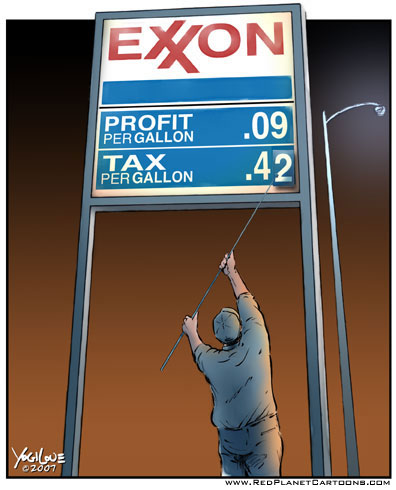
It is an often-touted fact that the United States has an embarrassingly high corporate income tax rate. At 34.9%, we sit second only to the languishing, no-growth economic nightmare that is Japan and just ahead of Argentina within the G-20’s ignominious list of high-tax rate nations. If the company you keep is any indication of where you’re headed, we’re in for trouble. Japan, still combatting the symptoms of its “Lost Decade” and a bad bout of Paul Krugman-style quantitative easing was recently eclipsed by its rival from across the Sea of Japan in total economic output. Argentina, though it has been fairing better in recent months, is coming off of two years of sustained economic contraction and currently boasts a misery index of over 17.1%. It appears that, once again, Washington is aiming high.
Surely, if politicians are serious about freeing the United States from its current economic quagmire, they would take a good look at tax reform. How can they expect to see a meaningful recovery when the government seizes 35 cents out of every dollar that the corporate engines of production earn?
But is this really the case? David Kocieniewski doesn’t think so. In his recent article in the New York Times entitled “Biggest Public Firms Paid Little U.S. Tax, Study Finds,” Kocieniewski contends that operating within a convoluted realm of rebates, loopholes, and deferments, most American corporations only realize an average tax rate of 18.5%. Relying upon the research of the “left-leaning advocacy group, Citizens for Tax Justice,” the author leverages the tax returns of several companies to implicitly agitate against the reduction in nominal tax rates, arguing that the government should instead close loopholes to create “a fairer tax system, [a] reduced federal budget deficit, and more resources to improve our roads, bridges, and schools.” While at first glance this proposal seems reasonable, it doesn’t take long to see the danger in such thinking.
By Kocieniewski’s own portrayal, the current United States tax code is a morass of exceptions, loopholes, and bewildering legalese. Even Charlie Rangel and his 11 counts of House ethics violations can attest to its beguiling nature. With the official tax rate targeting such a staggeringly high percentage of corporate profit, the potential financial ramifications have forced companies both large and small to hide within the ugly underbelly of a taxation system run amok. Deploying untold amounts of cash and a serpentine force of attorneys, consultants, and lobbyists to navigate the arbitrary and inefficient network of tax loopholes, companies have typically been able to pay less than the 34.5% that they are required to. However, in order to do so, these same companies had to incur the costs of a war of attrition, the overhead from which most certainly erases much of gains they enjoy by defeating the initial imposition. The notion the United States tax code is friendly to business and investments because the government only sees revenue consistent with an 18.5% tax rate could not be more fallacious. If anything, it indicates the opposite. It is a sure but subtle sign that money is being spent to prevent government bureaucrats from spending it for them.
You can read Mr. Kocienieswki’s article here.
–Nick Desatnick

Be the first to comment on "The War of Attrition"